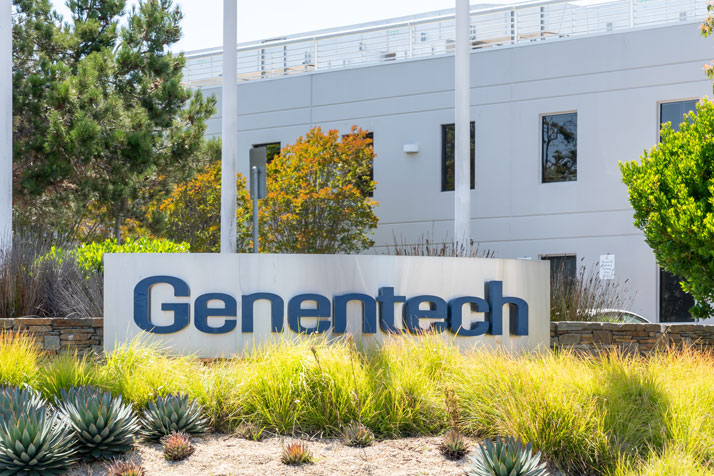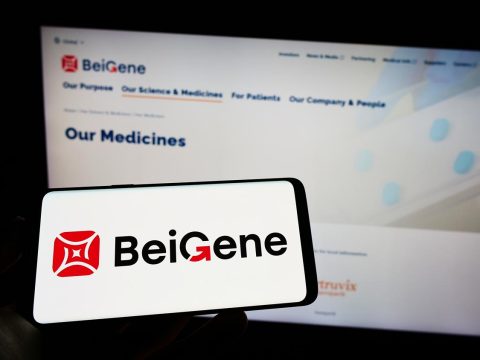Advertisment
New data reinforce the benefit of early preventative treatment with Hemlibra (emicizumab-kxwh) for babies with severe hemophilia A – Genentech/Roche

– Genentech, a member of the Roche Group announced that the primary analysis of the Phase III HAVEN 7 study reinforced the efficacy and safety of Hemlibra (emicizumab-kxwh) in previously untreated or minimally treated infants with severe hemophilia A without factor VIII inhibitors . Results showed that Hemlibra achieved meaningful bleed control in babies up to 12 months of age and was well tolerated. The new data were presented at the 65th American Society of Hematology (ASH) Annual Meeting and Exposition taking place December 9-12, 2023 in San Diego, California and included in the press program.
“Hemophilia A can have a devastating impact on any patient, but this is especially true for infants, where the emotional and physical stress due to frequent hospital visits, treatment administration and other worries can be distressing for babies and their parents and caregivers,” said Steven Pipe, M.D., professor of pediatrics and pathology at the University of Michigan. “These results reinforce the benefit of starting prophylaxis as soon as possible after birth, as well as for the use of subcutaneous treatments, which are especially valuable in young babies where access to veins can be very difficult.”
The burden of severe hemophilia A in babies and on their parents and caregivers is significant . The World Federation of Hemophilia treatment guidelines consider the standard of care in hemophilia to be regular prophylaxis initiated at a young age, as studies have shown this improves long-term outcomes, while reducing the risk of intracranial hemorrhage. However, for many babies with hemophilia A, prophylaxis is not started until after the first year of life because of the high treatment burden. Hemlibra, which is already approved and being used to treat babies with hemophilia A, provides a flexible treatment option that can be administered subcutaneously from birth at different dosing frequencies.
“The results of HAVEN 7 provide additional confidence in the efficacy and safety profile of Hemlibra for babies with severe hemophilia A and add to its extensive clinical and real-world evidence across all ages,” said Levi Garraway, M.D., Ph.D., chief medical officer and head of Global Product Development. “Conducted in collaboration with the hemophilia A community, this trial reflects our ongoing commitment to listen and respond to the needs of those impacted by this condition in hopes of advancing treatment standards even further.”
The HAVEN 7 study is a Phase III, descriptive, single-arm study set up in collaboration with the hemophilia A community to evaluate the efficacy, safety, pharmacokinetics and pharmacodynamics of subcutaneous Hemlibra in infants with severe hemophilia A without factor VIII inhibitors. These results, which included data from 55 participants, showed that at 101.9 weeks median follow-up, 54.5% of participants (n=30) did not have any bleeds that required treatment, while 16.4% (n=9) did not have any treated or untreated bleeds at all. There were no spontaneous bleeds requiring treatment in any participant, and all treated bleeds were as a result of trauma. A total of 207 bleeds occurred in 46 participants (83.6%); 87.9% of these were as a result of trauma. The model-based annualized bleeding rate (95% CI) was 0.4 (0.30–0.63) for treated bleeds.
No new safety signals were observed and there were no treatment-related serious adverse events, intracranial hemorrhages or deaths reported. Just 3.6% of participants (n=2) tested positive for factor VIII inhibitors, which may be a consequence of reduced factor VIII usage in participants treated with Hemlibra, and no participant tested positive for anti-drug antibodies. Results were consistent with positive results from the interim analysis and from previous Phase III HAVEN studies.
The results of additional research on biomarkers in the HAVEN 7 study were also presented at ASH and were supportive of the study’s primary efficacy analysis. This additional research showed that the pharmacodynamic profiles of Hemlibra in babies were consistent with those previously observed in older children and adults with hemophilia A. The data showed that Hemlibra exhibits the expected pharmacodynamic response despite the reduced presence of the clotting factors that Hemlibra binds to in this age group.
The Phase III HAVEN 7 study results complement data from the broader, pivotal HAVEN clinical program, providing insights into the evolution of hemophilia A in babies, and the impact of initiating preventative treatment from birth. The primary analysis is being followed by a seven-year extension period. Hemlibra continues to redefine standards of care in hemophilia A as a flexible treatment option approved across all ages and stages of life regardless of inhibitor status and at different dosing frequencies. It is approved for the routine prophylaxis of people with hemophilia A in more than 115 countries worldwide. It has been studied in one of the largest clinical trial programs in people with hemophilia A with and without factor VIII inhibitors, including eight Phase III studies.





